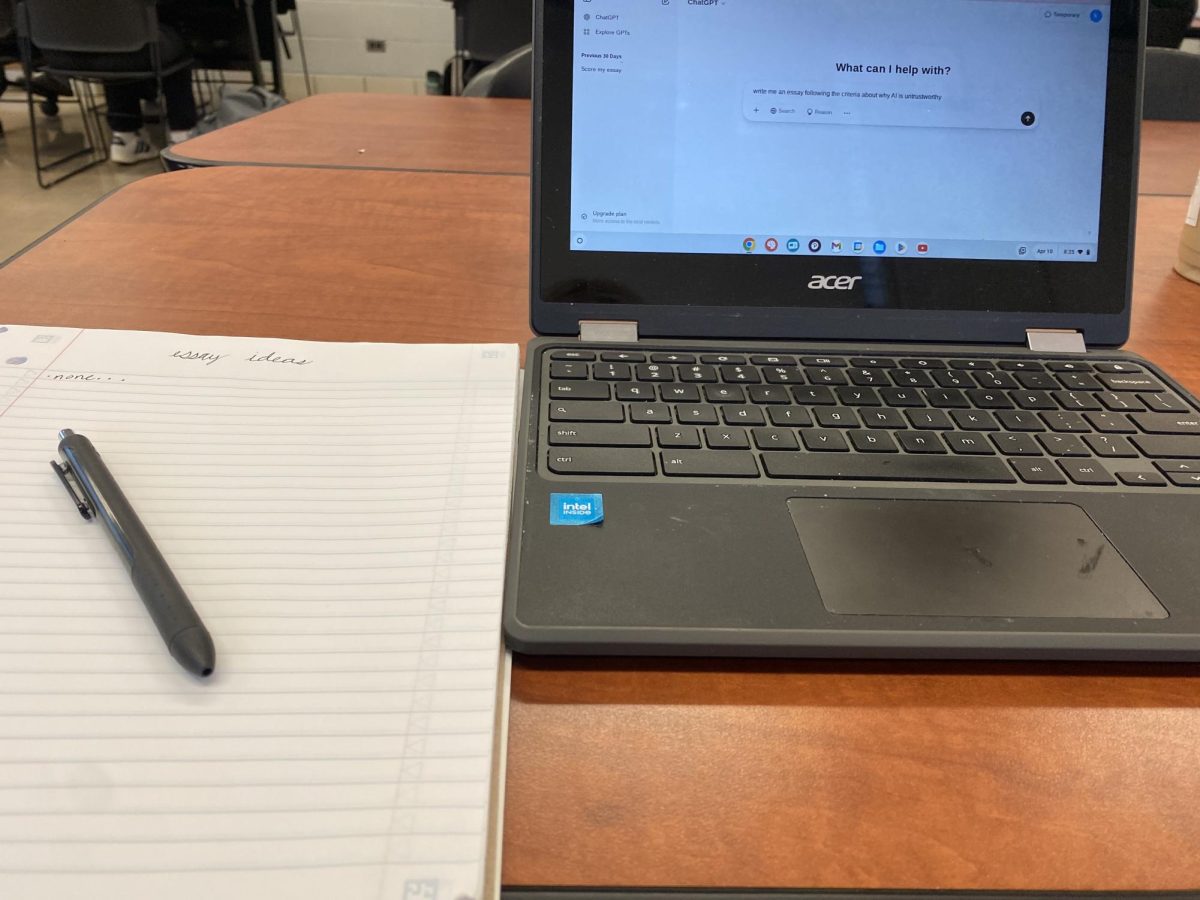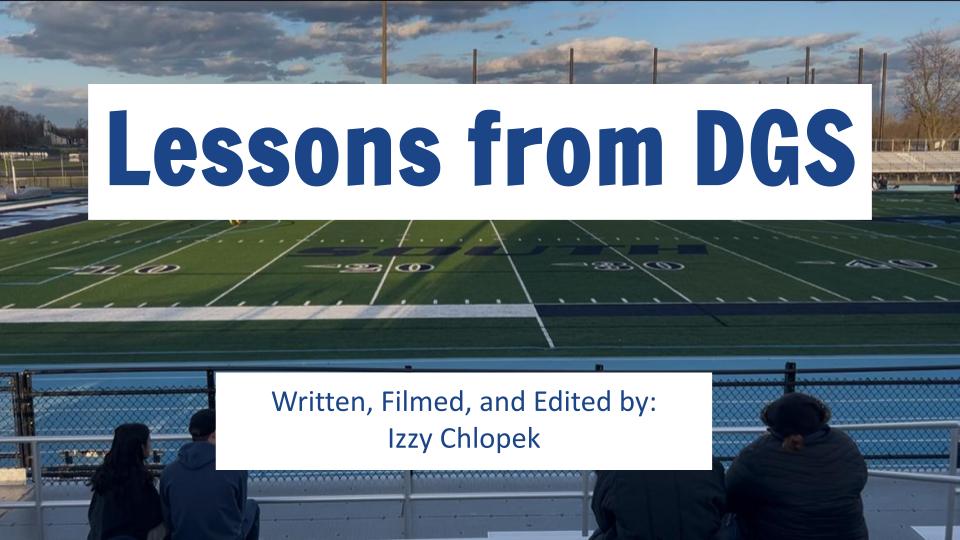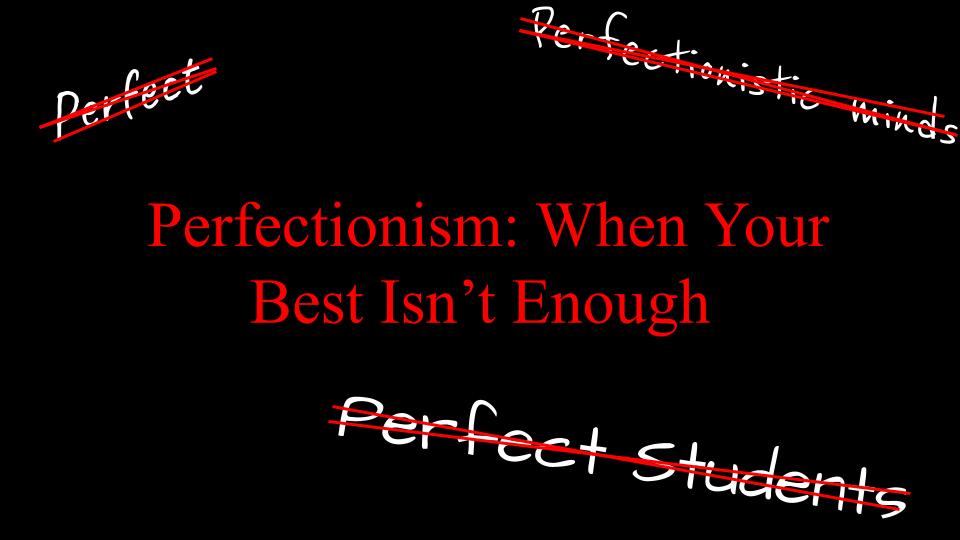“With our new AI writing feature”, “with the power of AI” and “our AI writing assistant” are all common statements seen today in countless platforms all revolving around one thing–artificial intelligence.
In recent years, technology has developed even further as AI rises to mainstream media. It can be used to paraphrase passages for you, create entire essays or summarize key points– the list just goes on. It’s even used to generate images or art that can be deceiving at a first glance.
But what exactly is AI doing for us humans?
English teacher Laura Cid shares her thoughts on how AI impacts students today.
“I’ve seen students at my previous school in the past rely on AI and think it’s perfect for them. So then they don’t check their work, they don’t make sure that what they want to say is there and they just turn in a product that upon reflection wouldn’t be proud of,” Cid said.
AI can also be used as a benefit to teachers in the classroom.
“There are teachers who have put their algorithm into ChatGPT to grade and give feedback into the ‘thing’,” Cid said. “It offers a backup.”
Cid also shares her viewpoints on how AI affects creativity in today’s world, especially classrooms.
“I’ve been reading high school writing for 20 years, so you kind of know what a teenager is supposed to sound like, so sometimes it’s easy to be like that’s a computer, and not a human teenager,” Cid said.
Today’s youth has grown up knowing a lot about AI in this digital world. Junior Eleanor Shifley explains the benefits that could come with AI.
“AI can have benefits and it is a huge advantage. We have used it in [AP] Lang to review our writing and improve our work. It can take different pieces of information and put them together coherently,” Shifley said.
Shifley also acknowledges how AI has impacted the world today.
“Some people have become too reliant on AI to where they no longer do deep thinking, instead asking AI and regurgitating exactly what the algorithm tells them,” Shifley said.
Outside of school and our personal lives, AI is affecting the world majorly. Ai is also putting people out of jobs. In the U.S. alone, it’s predicted that 45 million American jobs could be lost to AI by 2030, according to Seo.Ai.
And AI also has an environmental impact too. Adam Zewe from MIT news explains in his article “Explained: Generative AI’s environmental impact” that AI essentially poses increased electricity demand and water consumption.
As AI grows, so does concern regarding the tool. Cid explains her concerns with the rising service of AI.
“I think one of the main problems is that there’s nothing established and we don’t know how to deal with it,” Cid said.
It’s clear AI will stay a prevalent subject, and that the platform won’t be going away any time soon. As with most ‘things’, AI will only upgrade from here. So where will our world be in a few years as it continues to advance? What happens when it starts to learn and mimic human writing? Only time will tell where society will be as the AI platform progresses.






![In this documentary, you will learn how violins are made. All music is in the public domain:
Music Produced by Deutsche Grammophon, Medici TV, Heifetz Institute, and Queen Elisabeth competition
Paganini, Caprice No. 24 [Song recorded by Jasha Heifetz]. Heifetz Institute. (Original work published 1817)
Paganini, Caprice No. 24 [Song recorded by Jasha Heifetz]. Heifetz Institute. (Original work published 1817)
Bartok, Sonata No.1 for Solo Violin [Song recorded by Kevin Zhu]. Queen Elizabeth Competition. (Original work published 1944)
Paganini, Violin Concerto no. 1 [Song recorded by Philippe Hirshhorn]. Queen Elizabeth Competition. (Original work published 1819-1825)](https://southblueprint.com/wp-content/uploads/2025/05/Screenshot-2025-05-07-122429-1200x668.png)
